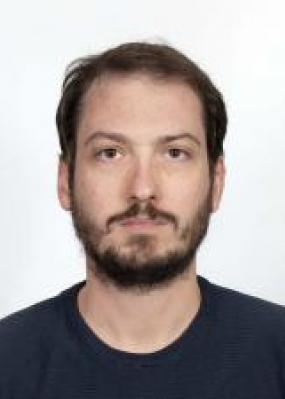LPC Distinguished Researcher

Name:
Georgios Krintiras
Institution:
Kansas
Personal web link:
What I will be working on:
It is thought that "systems" such as those formed in proton-proton (pp) collisions are too dilute for any partonic rescattering to drive the system toward an equilibrium state. However, significant correlated particle production has also been discovered in pp collisions since the advent of the LHC, raising the fundamental question as to what extent such nonperturbative particle production mechanisms can limit precise inference from the LHC pQCD data. In this project, the focus will be on studying soft in-jet particle production using the large pp data samples collected by CMS at 13 and 13.6 TeV during Runs 2 and 3, respectively, with particular emphasis on understanding the signatures of thermalization and collective expansion effects that have been recently seen by CMS and are not currently implemented in general purpose MC event generators. Technically, developments will target on the efficient online identification of these "anomalous" (i.e., highly anisotropic) type of events and optimized offline reconstruction using boosted object algorithms and pileup mitigation techniques.
My role in CMS past and present:
My journey with CMS started in 2015 as a PhD student, when we discovered top quarks in proton-nucleus collisions. Thanks to the support from the Collaboration, we managed to develop a thriving top quark physics program in three collision systems. Since then, I was honoured by the Collaboration to co-convene the luminosity calibration and heavy ion physics groups. Two milestones along this path had been the first publication on luminosity precision studies, verifying that LHC despite its complexity can be conceived as a precision tool, and the first comprehensive review of experimental studies in the realm of high-temperature QCD, highlighting the rich physics program. I firmly believe that CMS is a unique place for cross-disciplinary studies, e.g., it is amazing that we recently rediscovered 𝜏 leptons similarly to LEP, and although a recipient of an achievement award, the best prize is sharing my enthusiasm with colleagues let it be at the University of Kansas, Fermilab, CERN or any institute around the globe.